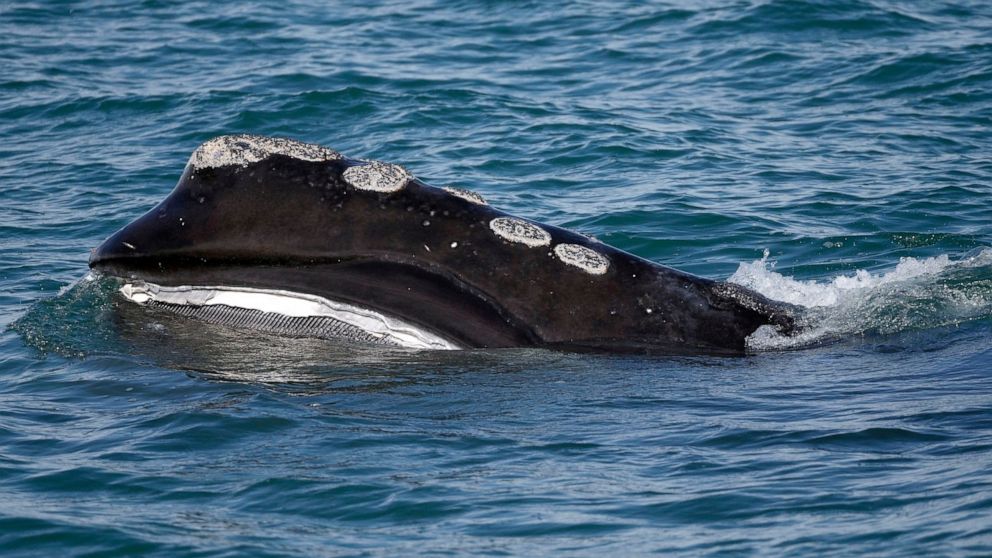
Baby whale genetic testing may help save species, study says
ABC News
Authors of a new scientific study say greater reliance on genetic testing of baby whales and their mothers may help save a rare species from extinction
PORTLAND, Maine -- Greater reliance on genetic testing of baby whales and their mothers can provide more accurate information about a rare species and increase the chances of saving them from extinction, according to the authors of a new scientific study.
The scientists, led by researchers at the New England Aquarium in Boston, studied critically endangered North Atlantic right whales, of which there are fewer than 340 in the world. Their numbers have dropped precipitously in recent years because of high mortality and poor reproduction.
The study's authors analyzed decades of data about the whales and found they had more success tracking the animals' survival, growth rates and life histories when they had access to genetic samples. They published their findings in the journal Mammalian Biology on Jan. 20.
The scientists focused on 13 right whale calves that were identified via genetics. They said they were able to determine the age of 12 of the whales and match 11 with their mothers — and even found that four believed to be dead were actually still alive.
